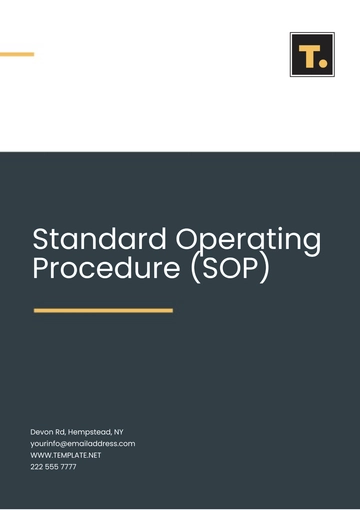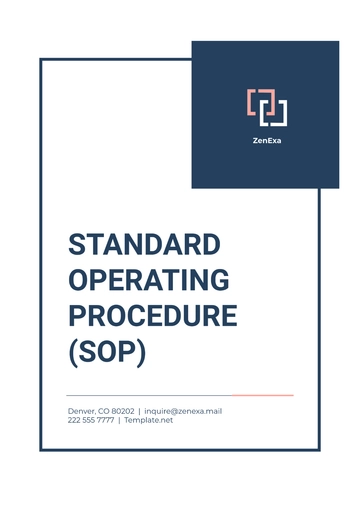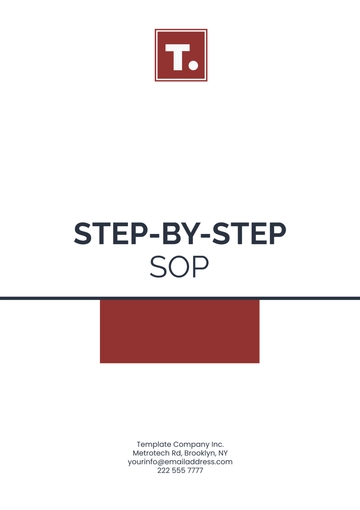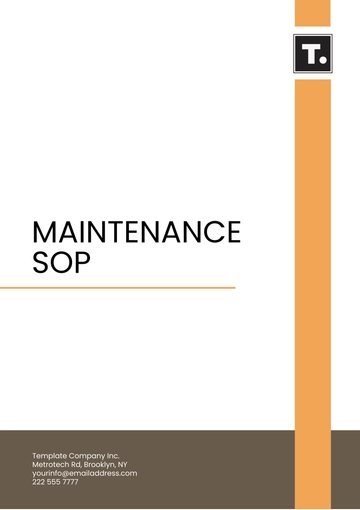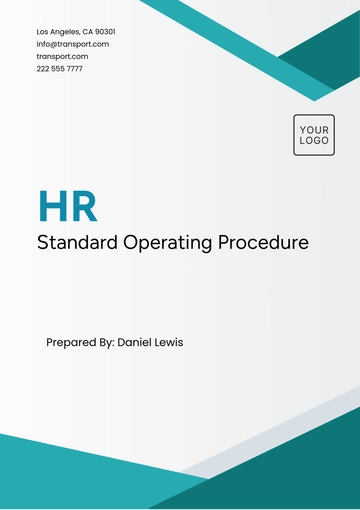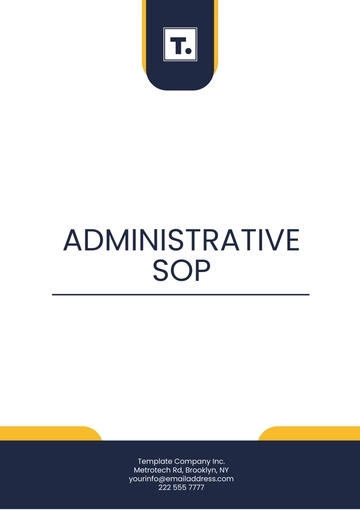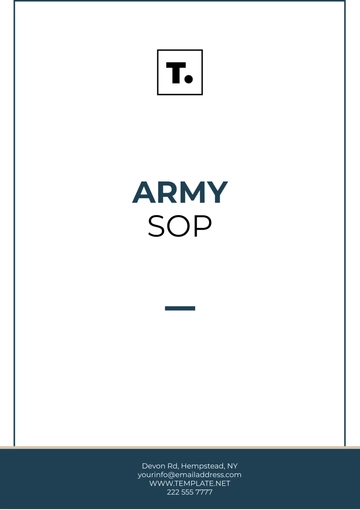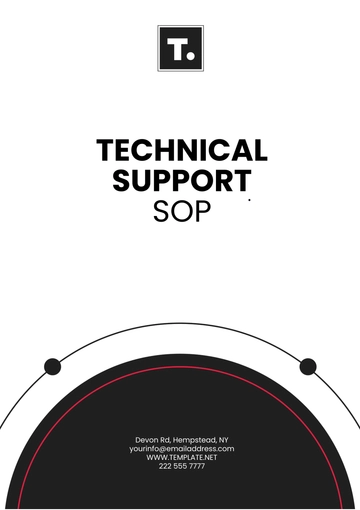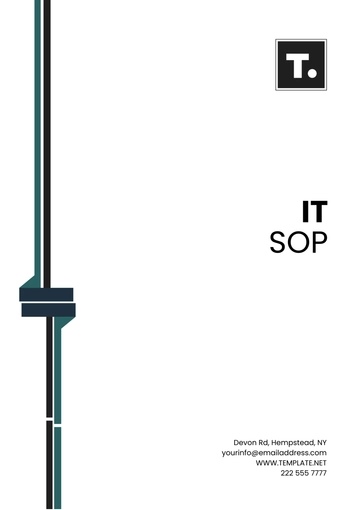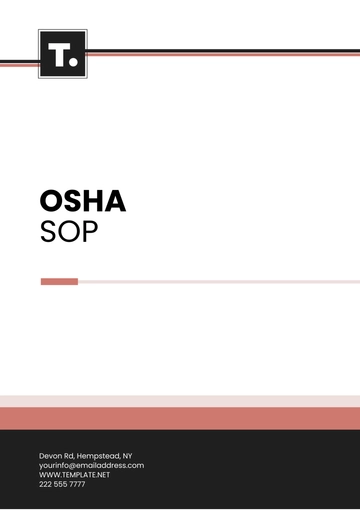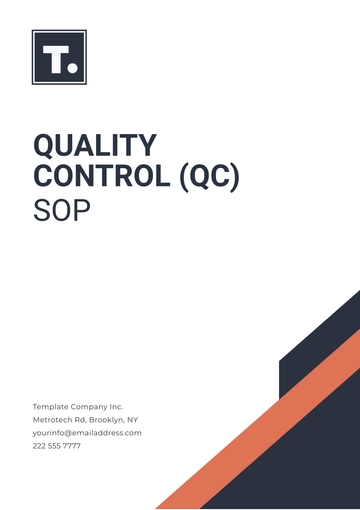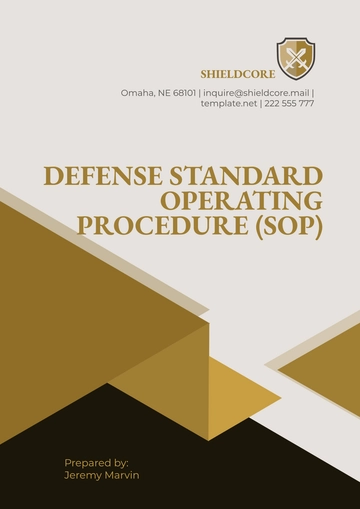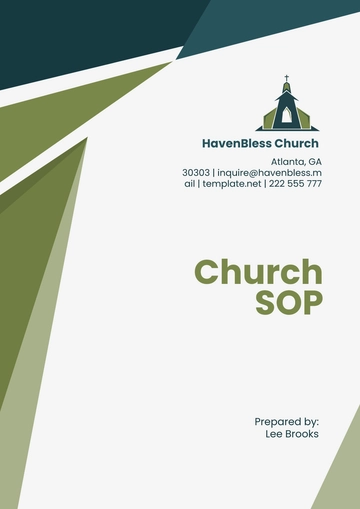Free Military SOP
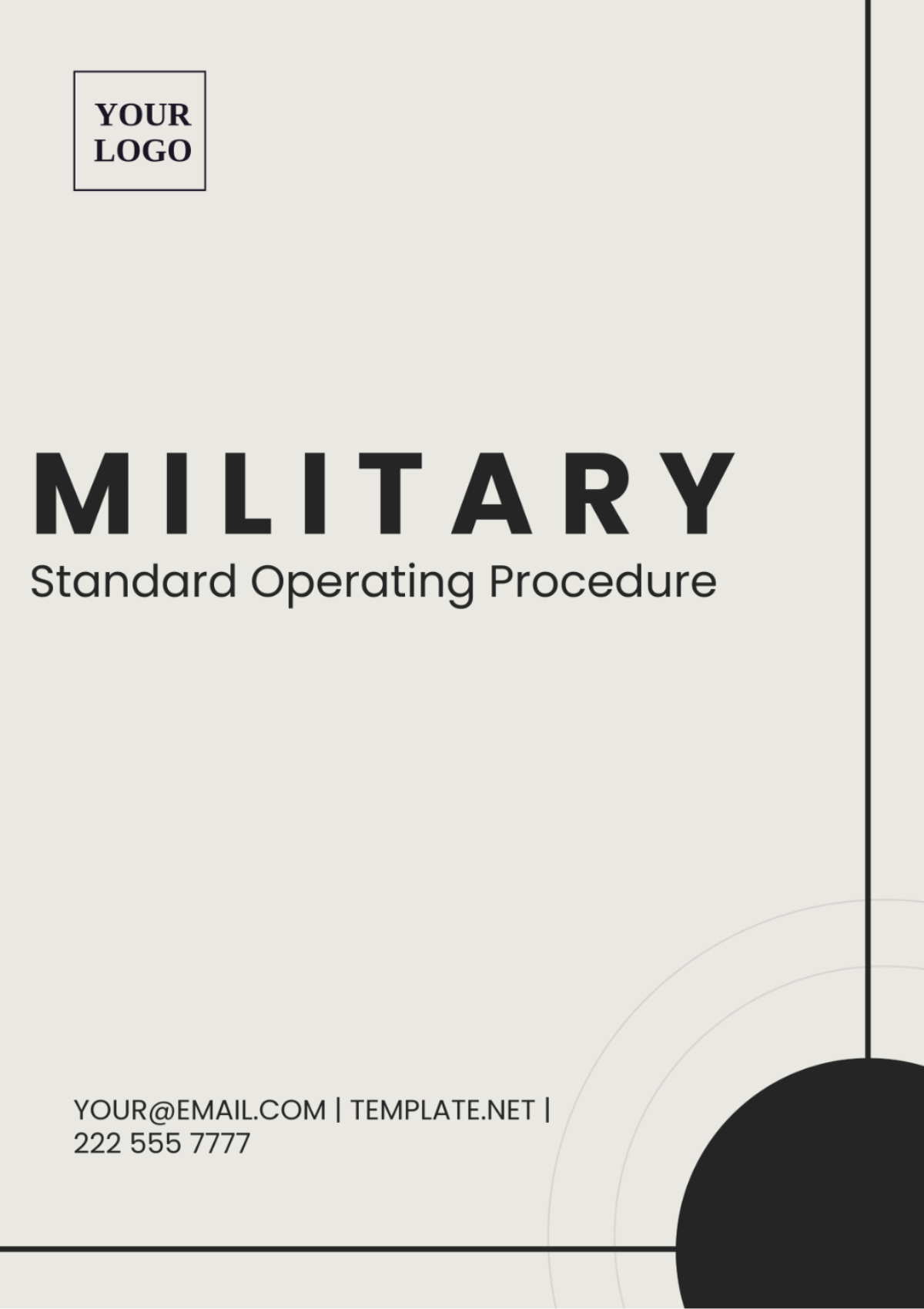
Military Standard Operating Procedure (SOP)
I. Introduction
The purpose of this SOP is to establish standardized procedures for [Your Military Unit] to ensure uniformity, efficiency, and safety in military operations. This SOP applies to all personnel within [Your Military Unit] and shall be followed rigorously.
II. Scope
This SOP covers a wide range of activities, including but not limited to:
Tactical maneuvers
Weapons handling
Communications protocols
Logistics procedures
Medical treatment
Maintenance tasks
III. Responsibilities
A. Commanding Officer ([Your Name])
Oversees the implementation and enforcement of this SOP.
Appoints designated personnel for specific roles outlined in this SOP.
Ensures that all personnel are trained by this SOP.
B. Operations Officer ([Operations Officer's Name])
Assists the Commanding Officer in developing and updating this SOP.
Coordinates the execution of operations following this SOP.
Monitors compliance with this SOP during operations.
IV. Procedures
A. Tactical Maneuvers
Conducting Patrols
Establish patrol objectives and routes.
Assign responsibilities to patrol members.
Conduct pre-patrol briefings and rehearsals.
Execute patrols with proper communication and coordination.
Conduct post-patrol debriefings and reports.
Establishing Defensive Positions
Conduct terrain analysis and select suitable positions.
Allocate resources for defensive positions.
Fortify positions with obstacles and defensive measures.
Establish security measures and surveillance.
Maintain readiness and conduct regular patrols and drills.
B. Weapons Handling
Small Arms Maintenance
Conduct daily inspections and maintenance checks.
Clean and lubricate firearms according to manufacturer guidelines.
Replace worn or damaged parts as necessary.
Store firearms securely when not in use.
Document maintenance activities for accountability.
Firearm Safety
Always treat firearms as if they are loaded.
Keep fingers off the trigger until ready to fire.
Never point a firearm at anything you do not intend to shoot.
Be aware of your target and what is beyond it.
Follow all safety guidelines and regulations.
C. Communications Protocols
Radio Procedures
Use standardized radio frequencies and call signs.
Follow proper radio etiquette and procedures.
Transmit clear and concise messages.
Acknowledge receipt of messages.
Maintain radio discipline at all times.
Signal Communication
Use visual signals such as hand signals or flags for short-range communication.
Establish pre-agreed signals for different situations.
Ensure signals are visible and understood by all personnel.
Maintain signal equipment and replace damaged or missing components.
Train personnel on signal communication procedures.
D. Logistics Procedures
Supply Requisition
Submit supply requests through designated channels.
Specify quantities and types of supplies needed.
Verify receipt of supplies upon delivery.
Store supplies properly to prevent damage or loss.
Report any discrepancies or shortages immediately.
Equipment Maintenance
Conduct routine inspections and preventive maintenance.
Identify and address equipment defects or malfunctions promptly.
Document maintenance activities and equipment status.
Train personnel on proper equipment maintenance procedures.
Coordinate with support units for specialized maintenance tasks.
E. Medical Treatment
Casualty Evacuation
Assess and stabilize casualties on the battlefield.
Coordinate medical evacuation procedures with support units.
Provide first aid and lifesaving measures as necessary.
Ensure timely and efficient evacuation to medical facilities.
Document medical treatment and evacuation processes.
Medical Facilities
Identify and designate medical treatment facilities.
Equip facilities with necessary medical supplies and equipment.
Staff facilities with trained medical personnel.
Coordinate patient transportation and care between facilities.
Maintain medical records and documentation.
F. Maintenance Tasks
Vehicle Maintenance
Perform regular inspections and preventive maintenance checks.
Conduct repairs and replacements as needed.
Document maintenance activities and vehicle status.
Ensure vehicles are mission-ready at all times.
Coordinate maintenance schedules with operational requirements.
Equipment Inventory
Conduct periodic inventories of equipment and supplies.
Verify inventory accuracy and reconcile discrepancies.
Update inventory records and databases accordingly.
Ensure accountability for all equipment and supplies.
Report any losses or thefts immediately.
V. Training
A. Initial Training
All personnel shall receive initial training on this SOP upon assignment to [Your Military Unit].
Training shall cover the procedures outlined in this SOP, as well as practical exercises to reinforce learning.
B. Ongoing Training
Regular training exercises shall be conducted to maintain proficiency in the procedures outlined in this SOP.
Training shall be tailored to address any updates or changes to this SOP.
VI. Revision History
Version 1.0: 2050
The initial release of the SOP.
Version 1.1: 2051
Updated procedures for enhanced clarity and effectiveness.
Version 2.0: 2053
Major overhaul to incorporate lessons learned from recent operations.
VII. Approval
This SOP is approved by:

[Your Name]
Commanding Officer
[Your Military Unit]
[Date Signed]
VIII. Distribution
This SOP shall be distributed to all personnel within [Your Military Unit] and made readily accessible for reference during operations.
- 100% Customizable, free editor
- Access 1 Million+ Templates, photo’s & graphics
- Download or share as a template
- Click and replace photos, graphics, text, backgrounds
- Resize, crop, AI write & more
- Access advanced editor
Streamline military operations with our Military SOP Template, available exclusively on Template.net. This editable and customizable document simplifies the creation of Standard Operating Procedures (SOPs) for military tasks and protocols. Crafted for flexibility, it's editable in our Ai Editor Tool, enabling seamless adjustments to meet your specific needs. Whether for tactical maneuvers, logistics management, or personnel procedures, this template ensures clarity and compliance throughout the process. Trust Template.net to provide the necessary framework for enhancing military efficiency and effectiveness. Simplify your procedures and ensure consistency in your military operations with confidence, knowing you're supported every step of the way.
